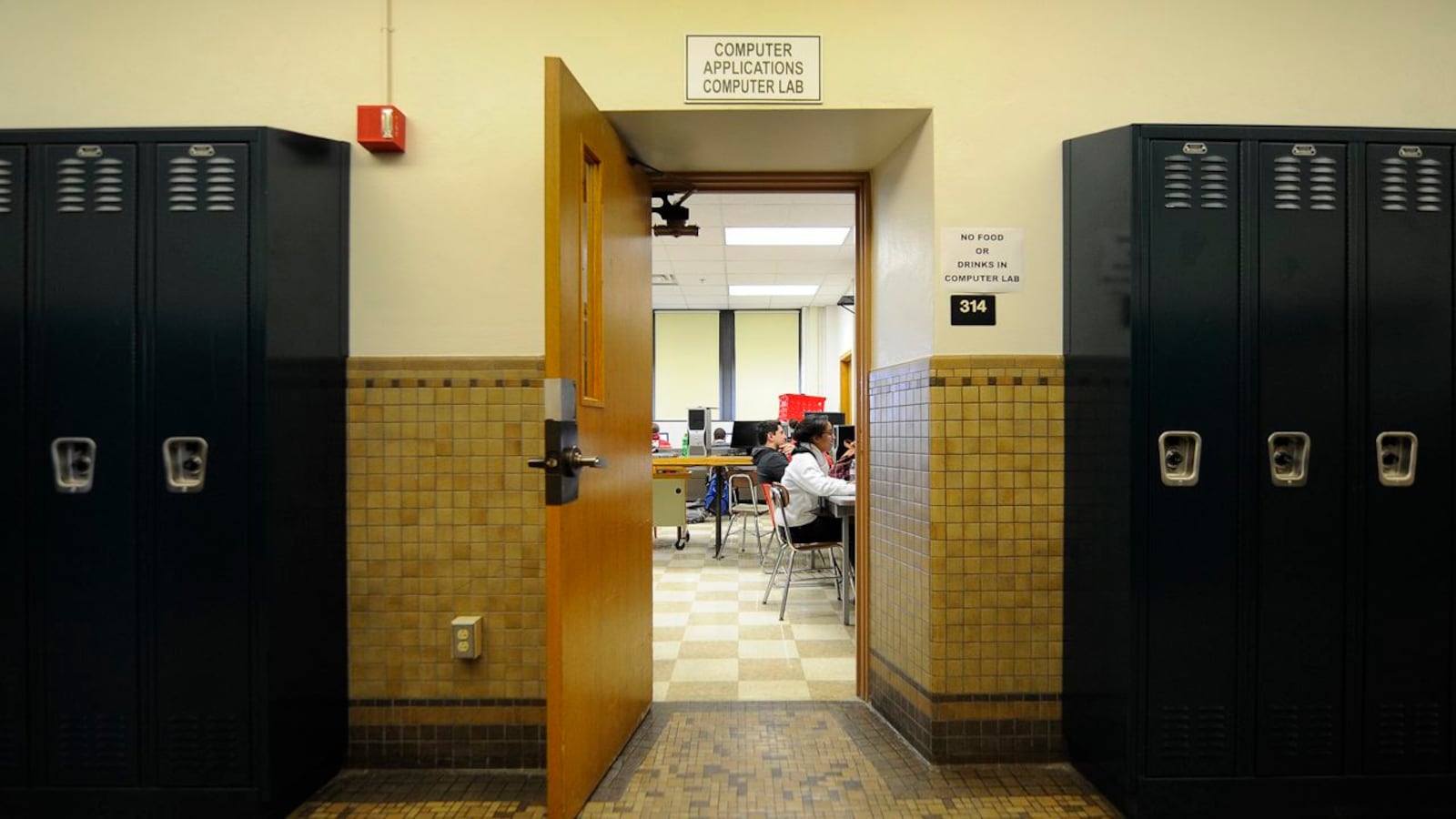Thanks to last-minute legislative wrangling, it’s unclear what test Indiana high schoolers will take for the next two years to measure what they have learned in school.
Lawmakers were expected to approve a House bill proposing Indiana use a college entrance exam starting in 2019 as yearly testing for high schoolers, at the same time state works to replace its overall testing system, ISTEP. But the start date for using the SAT or ACT was pushed back from 2019 to 2021, meaning it’s unclear how high schoolers will be judged for the next two years.
This is the latest upheaval in testing as the state works to replace ISTEP in favor of the new ILEARN testing system, a response to years of technical glitches and scoring problems. While a company has already proposed drafting exams for measuring the performance of Indiana students, officials now need to come up with a solution for the high school situation. ILEARN exams for grades 3-8 are still set to begin in 2019.
“Our next steps are to work with (the state board) to help inform them as they decide the plan for the next several years,” said Adam Baker, spokesman for the Indiana Department of Education. “We take concerns seriously and we will continue doing all we can to support schools to manage the transition well.”
The delay in switching from the 10th grade ISTEP to college entrance exams for measuring high school students was proposed Wednesday night as lawmakers wrapped up the 2018 legislative session. Rep. Bob Behning, the bill’s author, said the change came out of a desire to align the testing plan with recommendations on high school tests from a state committee charged with rewriting Indiana’s graduation requirements.
It’s just the latest road bump since the legislature voted last year to scrap ISTEP and replace it with ILEARN, a plan that originally included a computer-adaptive test for grades 3-8 and end-of-course exams for high-schoolers in English, algebra and biology. Indiana is required by the federal government to test students each year in English and math, and periodically, in science.
The Indiana Department of Education started carrying out the plan to move to ILEARN over the summer and eventually selected the American Institutes for Research to write the test, a company that helped create the Common-Core affiliated Smarter balanced test. AIR’s proposal said they were prepared to create tests for elementary, middle and high school students.
Then, the “graduation pathways” committee, which includes Behning and Sen. Dennis Kruse, the Senate Education Committee chairman, upended the plan by suggesting the state instead use the SAT or ACT to test high schoolers. The committee said the change would result in a yearly test that has more value to students and is something they can use if they plan to attend college. Under their proposal, the change would have come during the 2021-22 school year.
When lawmakers began the 2018 session, they proposed House Bill 1426, which had a 2019 start. This bill passed out of both chambers and the timeline was unchanged until Wednesday.
In the meantime, the Indiana Department of Education and the Indiana State Board of Education must decide what test high schoolers will take in 2019 and 2020 and how the state as a whole will transition from an Indiana-specific 10th grade ISTEP exam to a college entrance exam.
It’s not clear what approach Indiana education officials will ultimately take — that’s up to the state board — but state Superintendent Jennifer McCormick said on Monday that she’d like the state to stick with the 10th grade ISTEP test for now, a cheaper and somewhat easier option at this point, she said. It’s an unpopular move, she noted, and it would require tweaking the state’s contract with Pearson, the testing company that created this version of ISTEP. But it gives Indiana officials the needed time to work out the transition.
Some educators and national education advocates have raised concerns about whether an exam like the SAT or ACT is appropriate for measuring schools, though 14 states already do.
Jeff Butts, superintendent of Wayne Township, told state board members last week that using the college entrance exams seemed to contradict the state’s focus on students who go straight into the workforce and don’t plan to attend college. And a report from Achieve, a national nonprofit that helps states work on academic standards and tests, cautioned states against using the exams for state accountability because they weren’t designed to measure how well students have mastered state standards.
“The danger in using admissions tests as accountability tests for high school is that many high school teachers will be driven to devote scarce course time to middle school topics, water down the high school content they are supposed to teach in mathematics, or too narrowly focus on a limited range of skills in (English),” the report stated.
House Bill 1426 would also combine Indiana’s four diplomas into a single diploma with four “designations” that mirror current diploma tracks. In addition, it would change rules for getting a graduation waiver and create an “alternate diploma” for students with severe special needs.The bill would also allow the Indiana State Board of Education to consider alternatives to Algebra 2 as a graduation requirement and eliminates the requirement that schools give the Accuplacer remediation test.
It next heads to Gov. Eric Holcomb’s desk to be signed into law.

